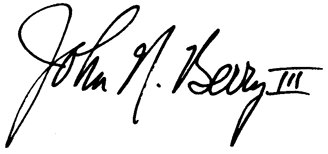50 Years of Activism
I wish I could have been in Washington, DC, on June 22 when the American Library Association’s (ALA) Social Responsibility Round Table (SRRT) celebrated its 50th anniversary. SRRT Action Council/Coordinator Charles Kratz invited me, and the message brought back memories of the time when SRRT was first founded. SRRT quickly became ALA’s conscience, and SRRT activism frequently shaped the agenda at ALA conferences in the years after the 1969 Annual Conference in Atlantic City, NJ.
 I wish I could have been in Washington, DC, on June 22 when the American Library Association’s (ALA) Social Responsibility Round Table (SRRT) celebrated its 50th anniversary. SRRT Action Council/Coordinator Charles Kratz invited me, and the message brought back memories of the time when SRRT was first founded. SRRT quickly became ALA’s conscience, and SRRT activism frequently shaped the agenda at ALA conferences in the years after the 1969 Annual Conference in Atlantic City, NJ.
I wish I could have been in Washington, DC, on June 22 when the American Library Association’s (ALA) Social Responsibility Round Table (SRRT) celebrated its 50th anniversary. SRRT Action Council/Coordinator Charles Kratz invited me, and the message brought back memories of the time when SRRT was first founded. SRRT quickly became ALA’s conscience, and SRRT activism frequently shaped the agenda at ALA conferences in the years after the 1969 Annual Conference in Atlantic City, NJ.
Those early years of librarian activism that led to the founding of SRRT were also crucial to my political, personal, and professional development. In 1963 I went to my first ALA conference in Chicago, where I first met LJ Editor Eric Moon. He hired me in 1964 to join him at Library Journal. As LJ’s newest editor I was assigned to report on SRRT meetings and all the other new activist activity in our field. My favorite event was the Congress for Change, a 1969 Baltimore conference that brought together graduate students from MLS programs all over the United States. It was organized by three students from the University of Maryland. After the Congress, nearly everyone drove up the coast to the 1969 ALA Conference in Atlantic City. I remember exhibitors threatening to complain to my bosses at the Bowker Company when a large group of us pinned our ALA conference badges on our backs and stood with our backs turned to Senator Clifford Case as he spoke at the ALA Exhibits Round Table in support of the Vietnam War.
Ever since, SRRT’s activism has forced the major issues of our society, and its libraries, onto the ALA agenda. Its members are still doing that work: SRRT’s Feminist Task Force; Hunger, Homelessness, & Poverty Task Force; International Responsibilities Task Force; Martin Luther King, Jr. Holiday Task Force; and Women’s Issues in ALA Discussion Group met at the recent conference, along with the SRRT Action Council and membership. Some task forces set up in the early years of SRRT, like the GLBT Round Table, left to become independent ALA units.
The creation of SRRT, with its easy rules for organizing librarians to focus on society’s critical issues, released a surge of action that made ALA focus on those issues, too. After ALA’s new open meetings policy was adopted, members could attend any session of any ALA program or governing body. SRRT members made the most of that access, and it gave ALA members a new way to add crucial ideas and voices to the ALA agenda. This brought a new openness to the old association and created the model that is still in use.
Kratz tells me that at the recent conference, SRRT endorsed a Resolution in the Defense of Free Speech of Supporters of the Movement for Palestinian Rights, which was passed at the ALA Membership meeting before the ALA Council referred it to committee for discussion and revision. A SRRT-endorsed resolution to remove Melvil Dewey’s name and rename the Melvil Dewey Medal was passed at the ALA Membership meeting and by the Council. Kratz says the Alternative Press Index/SRRT 50th Anniversary Social, featuring Phyllis Bennis, who directs the New Internationalism Project at the Institute for Policy Studies in Washington, was a huge success.
A great many of the original SRRT activists are still around, but they are much older now, myself included. The good news is that another new generation brings a new brand of activism to our profession through SRRT. Still the largest ALA round table with 1,939 members, SRRT leaders expect it to top 2,000 soon. SRRT empowers members of ALA and is still one of the best tools to continue to grow socially responsible librarianship. That kind of librarianship is emerging in places like Los Angeles County; San Francisco; Seattle; Broward County; Ferguson, Missouri; and many other public libraries, schools, and colleges in America.
The new generation of activist librarians, many in SRRT, are hard at work building a community-centered library service that attends to every need and issue our society faces. I am inspired by these activists. These times remind me of the late 1960s, when we tried to reinvent librarianship through SRRT. We are again headed into an activist redefinition of librarianship.

RELATED
ALREADY A SUBSCRIBER? LOG IN
We are currently offering this content for free. Sign up now to activate your personal profile, where you can save articles for future viewing









Add Comment :-
Comment Policy:
Comment should not be empty !!!